Return of Iljimae: Episode 24 (Final)
by javabeans
Ahhhh, another great drama ends.
Even though it took me forever to finish writing about this drama, I have to say that it’s one of the best I’ve seen in recent memory. I’m sorry to see it end and wish we had more offerings like it — directed with confidence, filmed with breathtaking scenery, acted with depth, scored with lush background music, and infused every step of the way with a heart-twisting dose of emotion. For being set against a large historical backdrop (of war and politics) and led by a famous fictional comic-book hero, The Return of Iljimae tells a surprisingly personal story.
SONG OF THE DAY
Jo Won-sun (Roller Coaster) – “천천히” (Slowly) [ Download ]
Audio clip: Adobe Flash Player (version 9 or above) is required to play this audio clip. Download the latest version here. You also need to have JavaScript enabled in your browser.
EPISODE 24 (Final): “That place I dream of”
In the wake of his stabbing, Iljimae hovers in semi-consciousness as he undergoes a long recovery. When he is better, he is briefed on all that has transpired during his convalescence.
The news is very bad — war has broken out. As planned, the Qing armies breached the Hanyang capital within ten days; the Koreans endured a siege for a month and a half before they were forced to capitulate. Thousands of Korean prisoners have been rounded up and brought to China, and the people are out of hope; their king was even forced to bow in submission to the Qing emperor.
They know that their warning message reached the Joseon army, and deduce that Kim Ja-jeom kept the information quiet.
Wol-hee thanks Yeol-gong for looking after her all this time, but now it’s time to move back into her old house with Keol-chi… and her newborn baby.
They remain hopeful for news of Iljimae. Wol-hee acknowledges that there has been one good thing to come out of the invasion — the moment the Qing state took over, they issued a decree of amnesty, meaning all people under the previous rule have been pardoned. This includes Iljimae, so he is longer a fugitive.
She and Keol-chi ask for news of Iljimae from POWs who have begun to return home from their imprisonment in China. (I love that Keol-chi describes Iljimae as “tall and looks like a girl.”)
In China (Shenyang), Iljimae and Yi-myung observe the cruel treatment of Korean prisoners with a heavy heart. The government releases some hostages, but only if they pay large amounts of money. Family members have therefore traveled all the way to China to claim their loved ones, going into debt in the process.
One girl’s plight catches Iljimae’s attention; the father has sold everything back home and traveled here to bring the required 300 nyang. But the official — leering at the pretty girl — arbitrarily raises the price to 500 nyang, knowing that the father can do nothing. Iljimae deplores that he awakened to such a dark world.
So when the official drags off the girl, Iljimae steps in and demands her release. He fights her captors easily, and releases the girl to her father.
But that’s only one person. Iljimae is deeply anguished for all the prisoners who cannot pay for their own releases. The young men will be sent off to war, while the very young or old will be forced into labor. Women will be made into lowly household slaves.
Seeing how much this weighs on Iljimae’s mind, Yi-myung tries to convince him that this is not his fault, but Iljimae can’t help but feel responsibility for this outcome. If only he’d delivered that letter…
Yi-myung informs him that the Korean crown prince, Prince So-hyun, has also been taken hostage and is being housed nearby. He has asked to meet Iljimae.
Despite his own circumstances, the prince is doing everything he can to help the captives, such as selling off valuables to trade for their freedom. But he can buy freedom for so few and there are so many of them needing rescue.
The prince laments their plight; even if some were able to escape their prisons, they would likely die from the hard journey back home, particularly at the river crossing near the border. They need someone to guide them — can Iljimae do it?
Even if it weren’t a royal favor, I’m certain Iljimae would have agreed, because he needs to feel he is doing something to help his people. He takes on the job of leading escaped prisoners out of Shenyang, through the forests, and to the border.
This is an ongoing project, since each group only consists of a dozen or so escaped prisoners. On one occasion, the group attracts the notice of patrolling guards, so Iljimae squares off against the guards while the people run for safety, and fells the guards easily with his trusty shurikens.
One of the children taken prisoner and delivered to Shenyang is our very own Cha-dol, who is forced to work. This situation recalls the life he was living before he was taken in by Bae — working under harsh conditions and facing verbal and physical abuse — and his usually sunny nature is oppressed in these miserable circumstances.
To recover Cha-dol, Bae Sun-dal goes on a solo journey to China, and he finally locates him. He’s able to buy Cha-dol’s freedom, and the reunion is sweet.
Or should I say, bittersweet. Bae’s fatigue from the journey is exacerbated by the fact that he had fallen ill before leaving Hanyang. He doesn’t have much time left but had pressed onward anyway, wanting to convey his last wishes to Cha-dol in person.
He directs Cha-dol to open a document — he has entered Cha-dol into his family registry as his son. He had already adopted him unofficially, but the family registry offers him legal privileges. With this document, Cha-dol will be able to inherit Bae’s property.
Cha-dol breaks down, moved and also scared to lose Bae. Meanwhile, the dying man speaks matter-of-factly, telling him that he doesn’t have a son to whom he can pass along his property. With Cha-dol, now he has somebody to carry on his line and prepare his funeral memorials. Cha-dol cries and calls him, for the first time, “Father.”
Bae has another request: He tells Cha-dol to finish the “Chronicle of Iljimae,” the compilation of illustrated books he has been working on all these years. He urges Cha-dol to agree so he can go in peace, and Cha-dol nods. No matter what, he will finish it.
Bae: “Don’t cry. People come and go. But I was able to meet two very precious people on this earth. You’re one, and the other is Iljimae. It’s difficult enough to find one such person, but to have gained two, am I not blessed?”
Bae smiles, and closes his eyes peacefully.
Wol-hee continues her work of transcribing books, but the booklender worries at the paper shortage. This is becoming a problem all over the country, so Wol-hee asks Yeol-gong to teach her how to make paper. Aside from being a necessary resource, this is a way for her to earn money.
The process is labor-intensive and requires a lot of workers, but Wol-hee immerses herself in it. Having a soft spot for the escaped former prisoners, she helps those she can and enlists their aid in the work. Happy to have hope in their lives again, they work diligently — and some even speak of their mysterious rescuer. Keol-chi has a feeling they may be speaking of Iljimae, so Wol-hee questions them. Not only does their guide’s behavior sound familiar, he also has a burn scar on his face. Wol-hee tries not to get her hopes up, but this is promising news.
Prince So-hyun grows concerned with the growing difficulties facing their underground railroad project; security is tightening and border crossing has become even more dangerous. Furthermore, the man who had been helping the prisoners across the river in his raft has died of illness. The prince is disheartened, but Iljimae remains committed. They will have to find a new raft man, but he assures So-hyun that he will keep working to free the people.
Cha-dol visits Iljimae, having been directed here by Bae Sun-dal. Iljimae is saddened to hear of the latter’s death, and sighs in regret:
Iljimae: “Looking back, there are so many people who cared for me. But even as I received that love, I was so shut in my own world that I didn’t realize it.”
Cha-dol feels the same way — he regrets not treating Bae better, spending so much time goofing off instead. It’s too bad that this wisdom must be born of such tragedy, but then again, perhaps that’s the value of wisdom.
But Cha-dol perks up as he asks, “Do you know that Wol-hee had a baby?”
Iljimae looks up in surprise — no, he hadn’t heard. His eyes fill with tears and he smiles a wobbly smile as he lets this news sink in: “Wol-hee had my son?”
Another surprise awaits Iljimae when he goes to meet their new raft man: It’s Yang-po. When war broke out, he had joined the military and killed a lot of men on the battlefield. Yet one day, he was overwhelmed by the feeling, “Killing my opponent so I could live — I couldn’t bear it.” He had to leave, and found some work smuggling when he heard there was someone sending Korean prisoners of war back to Joseon.
He tells Iljimae, “The moment I heard that, I knew it was you.” Iljimae asks, “Is that why you came to help me?” Yang-po nods.
And then…NINE YEARS PASS.
(Normally I dislike dramas skipping ahead at the last moment, but the story is built around real historical events, and works off the chronology of the war.)
Wol-hee and Iljimae’s baby, Young, is now a young boy, and Wol-hee has continued working all this while transcribing books for the booklender.
Today, something catches her eye and she becomes suddenly alert: A stack of new books are on the counter, and they’re titled “The Chronicle of Iljimae.”
Anxiously, Wol-hee asks the proprietor where this came from, who brought it by, needing to track him down right away. She is told that the young man is still here, and turns to see…
…Cha-dol, now a grown man. (We don’t recognize him because the actor has changed, but she does, and greets him warmly.) According to Bae Sun-dal’s wishes, Cha-dol has now finished writing the books, and he gives her her own set.
Both Keol-chi and little Young urge Wol-hee to read the book to them. As she goes over Iljimae’s early life, a montage covers some of teenage Iljimae’s key moments in the series.
However, when she reaches her own meeting with twenty-year-old Iljimae, Wol-hee is overcome with emotion. She breaks off, tells them that she cannot continue, and hurries out. Once alone, she bursts into tears, missing him after all these years.
All the while, Iljimae has continued helping POWs escape to Joseon. He’s managed not to get caught, which is an admirable feat in itself, since the Qing army is eager to capture him. To this end, they have sent Wang Hweng-bo — who has found success in the army — to catch him, as he has experience with Iljimae. (He knows Iljimae is the runner because the mysterious guide has used shurikens against the soldiers.)
Iljimae isn’t afraid of Wang Hweng-bo, only exasperated and unwilling to waste his time with him. He turns away, not bothering to engage — but Wang orders his men into action, and they sound a drum. He knows Iljimae’s hidden weakness.
At the first sound of the drum, Iljimae’s body immediately tenses and he doubles over in pain. Wang Hweng-bo watches Iljimae fight the agony with satisfaction, waiting for him to crumple… but he doesn’t.
Slowly, Iljimae starts to relax, straightening even as the drumbeat continues. He turns to face Wang Hweng-bo, who panics: “Why aren’t you falling down? Fall down!”
Iljimae: “When you’ve recovered from a big injury, your realize your prior hurts become like nothing. You people have dealt me and my country a huge injury. I have forgotten my earlier pain now.”
Again, Iljimae turns to go, and this time Wang hurriedly stops him. He actually has another reason for being here: The emperor wants to meet him. Iljimae thinks this is a desperate ploy, but Wang insists this is true — the emperor has been ill, and there’s something he must collect from Iljimae. Wang Hweng-bo only knows that it’s something “he must receive in exchange for a golden plum blossom.”
Iljimae has a secret meeting with Emperor Huang Taiji, who recognizes him from years ago, back when Iljimae still lived with his adoptive parents (in Episode 2) and Huang’s son had unfairly attacked him. Huang hasn’t forgotten Iljimae’s name, or the look in his eye.
The emperor asks for his sword, which holds huge significance. Iljimae understands that the sword is said to be the source of imperial power, but Huang says it’s more than that — it dates back to the founder of this nation, and only the possessor of the sword can be recognized as the true emperor. He made a fake sword after the theft, but he doesn’t have many years left to live and he needs to pass on the real sword to his son: “If I don’t, this country will fall into chaos.” Huang says, “I know why you took that sword. You were showing me that you could kill me, and telling me not to go to war.”
As the emperor didn’t pay heed to his warning, it’s unsurprising that Iljimae has little sympathy for his predicament. He bites out, “Countless people have died in the war. You dragged innocent citizens to this land where they suffer.”
The emperor offers to negotiate a deal, so Iljimae responds, “Release the Joseon prisoners.” If the sword is worth that much to him, he should be able to do that. To ensure this won’t be an empty gesture, Iljimae warns, “If you don’t keep your promise, I will take the sword away again.”
They stare for a long moment, until the emperor concedes ruefully. And Iljimae shocks him with the revelation that the sword never left the palace. It’s in the ceiling of his own chamber.
Finally, a change in the war: the Ming regime falls and is taken over by the Qing, calling a halt to the fighting. Crown Prince So-hyun has been granted permission to return home, as well as the 30,000 Joseon hostages. It was the emperor’s deathbed order.
Iljimae’s work here is at last complete, and he is free to come home. The wise, idealistic Prince So-hyun tells him, “Let’s go back now and make a new country. Let’s return together.”
(The narrator fills us in on the historical tidbit that Prince So-hyun died a suspicious death as soon as he returned home, a circumstance oft-explored in other works, though it is a mere footnote in this story.)
Again, Wol-hee and Keol-chi come to greet the returning hostages, waiting for Iljimae to appear. They wait for a long while, until most of the prisoners have gone on their own way, and still no sign of Iljimae.
Keol-chi offers to keep waiting, and sends Wol-hee and Young home first. Mother and son take a meandering path home, enjoying the day — which means that when Iljimae arrives home, the house is empty.
Remembering the hiding place in the wall, Iljimae retrieves the gate key, and also finds a note she had placed inside years ago. It’s a combination love letter and welcome home message, and Iljimae reads:
Wol-hee: “To you who will return someday. I thought that you had left forever that day. But what happened? Though you may be many miles from me, I don’t think of you as being far away. No matter the distance between us, I can feel you. My heart and yours beat together. Whatever you could see and hear, I could too, whether it was the sound of the wind, the sound of the water, the clouds, or even the starlight. I could see and hear them all. You will return someday. I have written here my yearning, which cannot be fully expressed in words.”
As he finishes reading, Young appears in the open doorway alone, stopping at the sight of the stranger. Iljimae immediately knows this is his son, and approaches slowly. Kneeling down in front of the boy, he asks, “Do you know who I am?”
The boy recites, as though he’s had this memorized for a long time, “The only man to read that letter is my father. My mother said that.”
He smiles at his son and says, “You’ve grown a lot. I’m sorry I wasn’t able to see you growing up. Can you forgive me?”
The boy nods, and Iljimae draws him into a hug.
Young has dashed home ahead of his mother, so she is still back in the marketplace. Father and son arrive holding hands to greet her there.
Wol-hee spots Iljimae and pauses in her tracks; her eyes fill with tears, taking in the sight of her two men standing together.
She says, “You’ve returned.”
He answers simply, “Yes, I’ve returned.”
That night, Wol-hee wakes to find herself in bed alone. She finds Iljimae sitting outside, disconcerted by a dream he had.
Iljimae: “It was a world I couldn’t recognize. Even in nighttime, bright lights shone a blinding white, and houses stretched as far as the eye could see. It was a world inhabited by people wearing different clothing than ours. I don’t know when it is, but I felt it was a world that hasn’t come yet.”
Wol-hee: “A hundred years from now? Two hundred?”
Iljimae: “I’m not sure. Much more than that? Even then, I was wearing a disguise and standing on the roof of a tall house, as though my work wasn’t yet finished.”
Wol-hee: “That’s sad, if you still have to do that kind of work then.”
Iljimae: “Yes, it’s sad.”
Wol-hee: “But don’t worry, that was just a dream. In such a far-off future, there will be a world that does not need an Iljimae.”
Iljimae: “Do you really think so?”
Wol-hee: “Yes, I’m sure of it.”
Wol-hee urges Iljimae to return to sleep. He lays his head in her lap, and sleeps.
As the waterline of the Han River transitions from Joseon Korea to its contemporary counterpart, the narrator tells us that Kim Ja-jeom did not achieve his greatest ambition and was executed through dismemberment.
The images echo Iljimae’s dream, as a modern-day version of him stands on a rooftop, in a world that doesn’t need a hero calling himself Ilijmae.
The Return of Iljimae Score Soundtrack – “Main Title” [ Download ]
Audio clip: Adobe Flash Player (version 9 or above) is required to play this audio clip. Download the latest version here. You also need to have JavaScript enabled in your browser.
COMMENTS
Episode 23 brought tears to my eyes because it was sad; Episode 24 brought tears to my eyes because it was so lovely in its simplicity.
(I’m sorry, I tend to get maudlin with last episodes. I just can’t help it!)
So — at last we have the (final) return of Iljimae.
I say “final return” because one of the recurring motifs of this drama, begun in episode 1, has been Iljimae’s constant travels and returns. Or put another way, his returns represent his growth and evolution; his “departures” are always spurred by cataclysmic change, and as he struggles to deal with the new challenges, he’s always trying to make his way back home. Sometimes that return isn’t to a literal home but more like a symbolic gesture; he seeks a return to normalcy out of chaos, to restoring life to its proper balance, where people are valued and their lives not marked by suffering.
This is one of the things I love so much about this drama, that Iljimae is always returning, always progressing, always finding parts of himself. He grows every step along the way, on an intellectual, philosophical level. Often a drama stops the character from developing after a certain point, and throws external obstacles in the hero’s way instead. I think what makes this Iljimae remarkable is not that he was a good leader or charismatic hero, but that he was open to learning. I love that his hero sought no glory — for the nine years as a runner, he told the escapees that he had no name. He just has a fatalistic understanding that he is the mountain ridge, and he owes it to the world to do what he can with his gifts.
Mind you, his gifts aren’t even that extraordinary in the scheme of heroic gifts — he’s a great warrior, yes, but he is normal in other senses of the word. Iljimae is a Great Man, but his greatness doesn’t come from genius or wisdom or paranormal abilities. He just cannot live an ordinary life in extraordinary times. Perhaps in times of peace, he could be happy in an unremarkable life, his sense of justice and honor unchallenged. In an early episode, the narrator surmises that Iljimae may have been content to live as a simple fisherman with Keol-chi, if not for a disturbance that opened his eyes.
This may also be why Wol-hee suits him — because even though she doesn’t like it, she’s someone who understands that she’s not the priority in Iljimae’s life, not when he has the power to save multitudes of people. Even though she had her flashes of petulance, I appreciated throughout the series that she didn’t ask nosy questions for the sake of curiosity, and accepted that Iljimae was working for a greater good. And once he finishes his work, she knows he will come back, and only then can he sleep. Like Yeol-gong said, the rainstorm brings no rest to the mountain ridge, no matter how he tries to ignore it, so Iljimae will only be at peace when the storm clears.
Ah, I freaking love all the characters in this drama and maybe that’s why the stories affected me on an emotional level. They’re all so wonderfully complex, and they weren’t painted as absolutes. For instance, you can’t classify the characters, as you so often can in other dramas, as “the jerk,” “the nice one,” “the comic relief,” and so forth. (Except Kim Ja-jeom, maybe. Dude is evil.) But even the comic relief characters like Wang Hweng-bo and Cha-dol had significance outside of their jokesy moments. Iljimae’s enemies weren’t all bad, either — they just had different agendas. Yang-po is a great example, because I found it intriguing that he was an honorable guy even as he exploited Iljimae’s weakness to kidnap him.
I like that morality wasn’t painted in harsh black and white but shades of grey: Iljimae certainly broke laws, but his crimes weren’t glossed over and forgiven just because he was our hero (compared to, say, Strongest Chil Woo where every episode our heroes killed bad guys without showing much distress about it). Iljimae, on the other hand, is probably the most damned sensitive hero I’ve ever seen. (And I love him.) Despite the fact that he has sometimes killed in the heat of battle, he learns to avoid it whenever possible because committing crimes even for the sake of a greater good is not desirable — that Machiavellian mode of thinking is reserved for heartless baddies like Kim Ja-jeom. Even Yang-po expresses conscientious objections with killing as a soldier during wartime.
And the ending?
LOVE IT.
This is actually very reminiscent of what Hong Gil Dong did in its final episode, and I remember writing a great long defense of it in that recap. However, seeing Return of Iljimae‘s way of dealing with a similar idea — that the hero lives on in modern times symbolically — makes me appreciate so much how this drama did what the Hong sisters could not, and that is make this ending (1) beautiful rather than didactic, and (2) about Iljimae the person, not the hero as an abstract, cartoonish figure.
What I mean by that is, I did like the Hong Gil Dong finale and thought it was quite touching, but it left an uneasy aftertaste, and I couldn’t quite put my finger on why. Without getting spoilery, let’s just say that I really liked what they were going for, but I think they hit the wrong tone and went too sad, then too over-the-top with the epilogue. It was a little disconnected. In contrast, Return of Iljimae‘s ending was true to the series. And how much do I love that last scene where Iljimae sleeps in Wol-hee’s lap, finally able to close his eyes in rest — at least, for now. His life hasn’t been wrapped up in a neat narrative bow, but we can breathe now, step back, and let him continue living long after we’ve stopped watching.
The epilogue in this episode retains that beautiful, sad, yet hopeful vibe of the rest of the drama. This Iljimae isn’t just a cartoon hero, and we can’t just see him swagger and grin and think, “Cool!” He’s not swashbuckling, and he’s not superhuman. Maybe this is why I’ve always been struck with the fighting scenes, because the characters fight as though they’re really fighting, not as actors showing off their skills. This Iljimae feels like a real person, someone who wishes there was no need for him to be a hero, because above anything he wants to experience normal, everyday happinesses.
The ending of Hong Gil Dong gave us personal sacrifice for the greater good, and there’s a tendency toward glorification of tragedy. The ending of Return of Iljimae gives us a personal victory, so the triumph is sweeter.
RELATED POSTS
- Return of Iljimae: Episode 23
- Return of Iljimae: Episode 22
- Return of Iljimae: Episode 21
- Return of Iljimae: Episode 20
- Return of Iljimae: Episode 19
- Return of Iljimae: Episode 18
- Return of Iljimae: Episode 17
- Return of Iljimae: Episode 16
- Return of Iljimae: Episode 15
- Return of Iljimae: Episode 14
- Jung Il-woo talks about acting, fame, and the future
- Return of Iljimae: Episode 13
- Return of Iljimae: Episode 12
- Return of Iljimae: Episode 11
- Jung Il-woo is happiest with script in hand
- Return of Iljimae: Episode 10
- Return of Iljimae: Episode 9
- Return of Iljimae: Episode 8
- Return of Iljimae: Episode 7
- Return of Iljimae: Episode 6
- Return of Iljimae: Episode 5
- Return of Iljimae: Episode 4
- Return of Iljimae: Episode 3
- Return of Iljimae: Episodes 1 & 2
Tags: Jung Il-woo, Return of Iljimae, Yoon Jin-seo
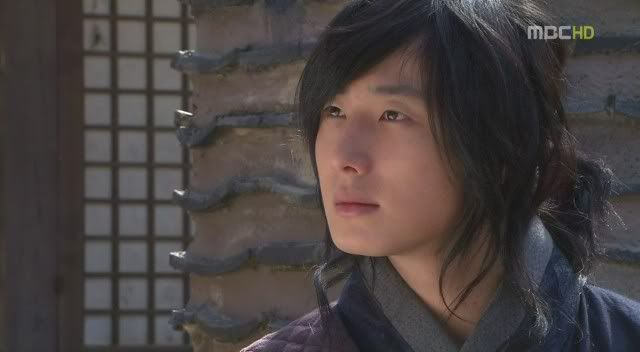

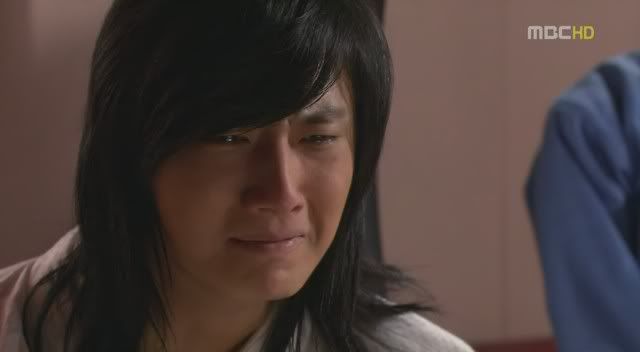
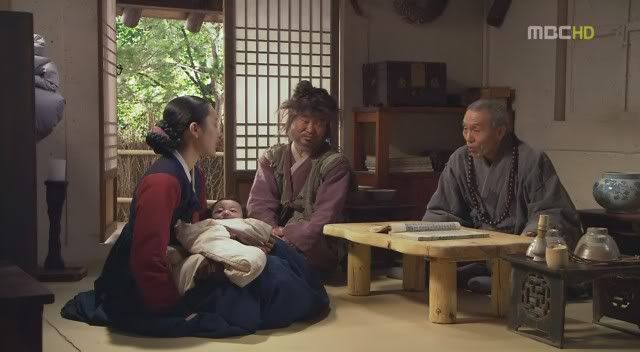
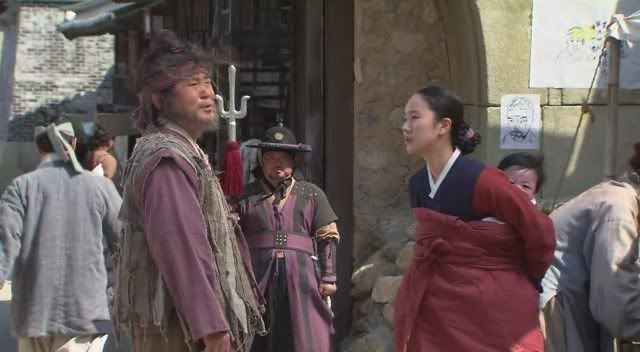

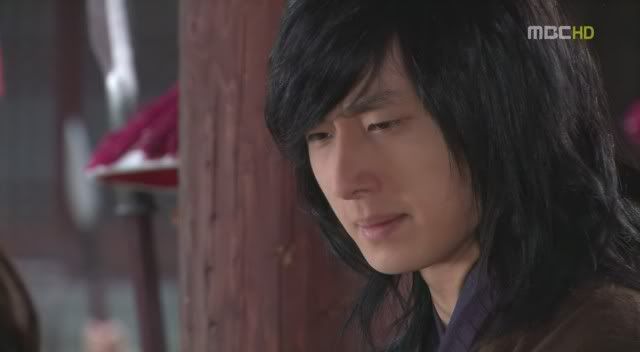
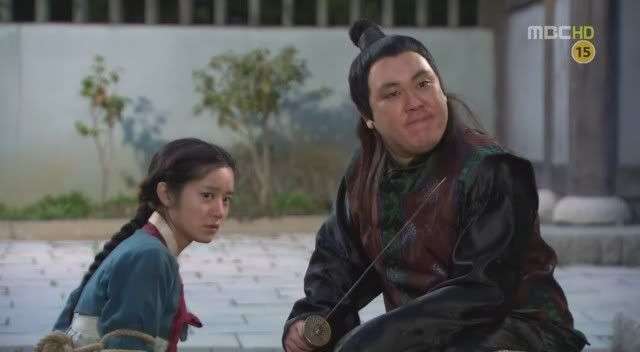
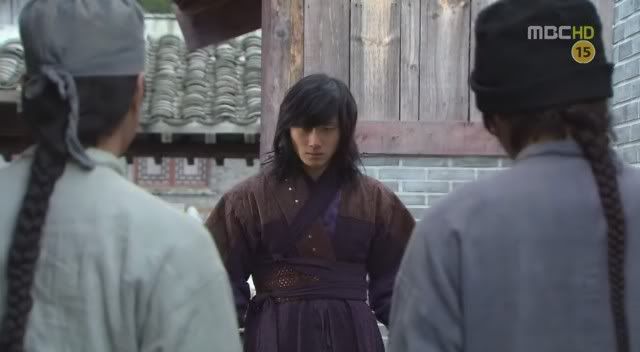

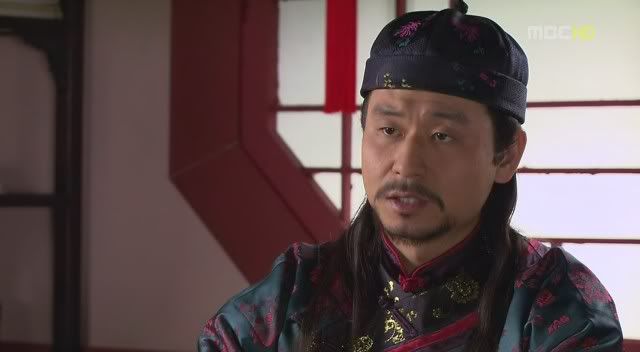
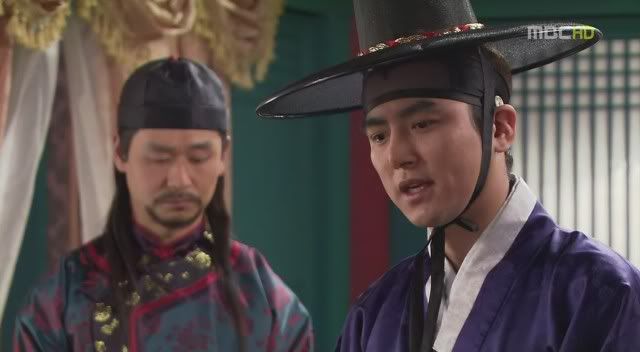
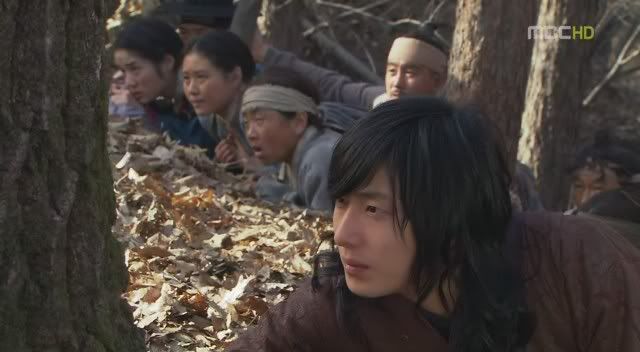

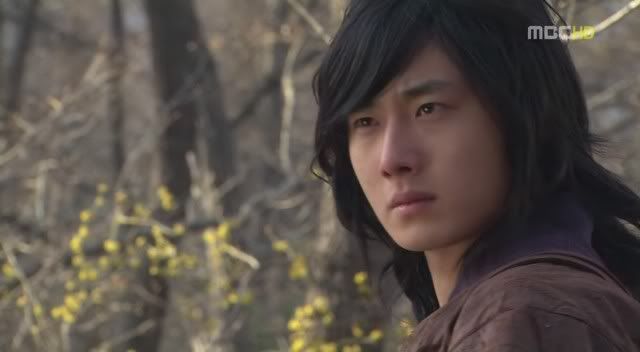

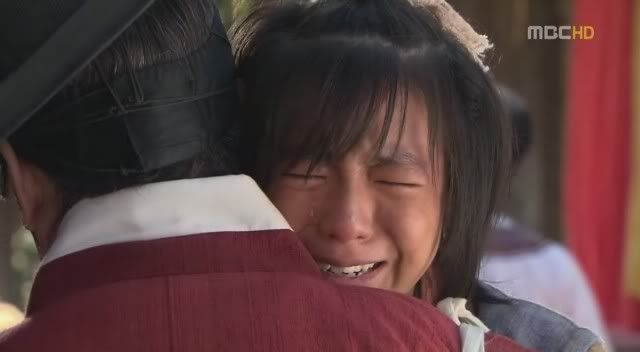
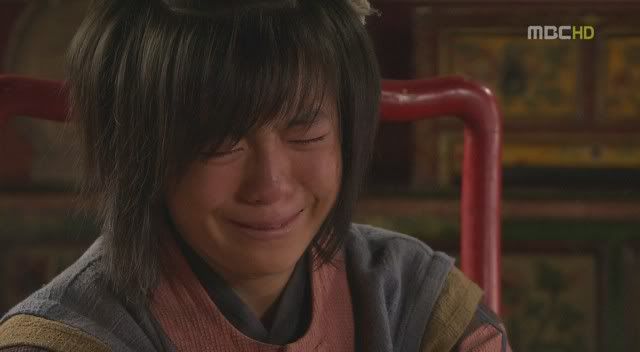
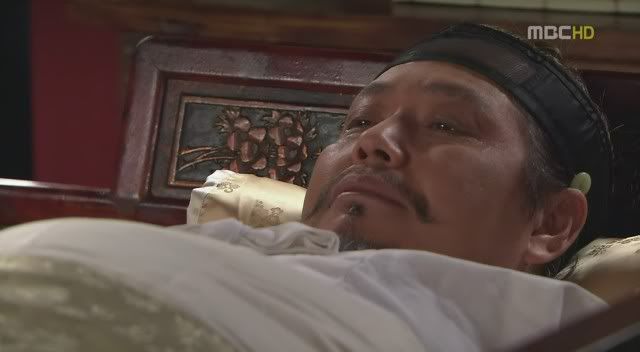
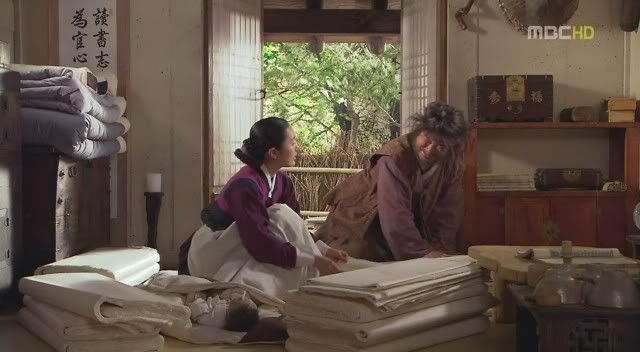
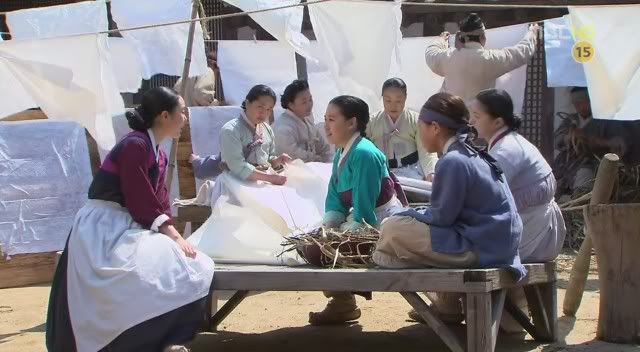
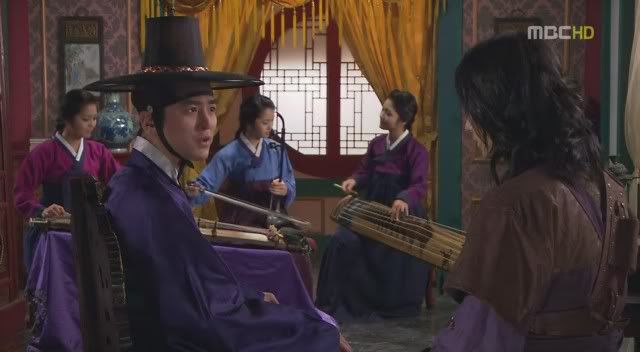
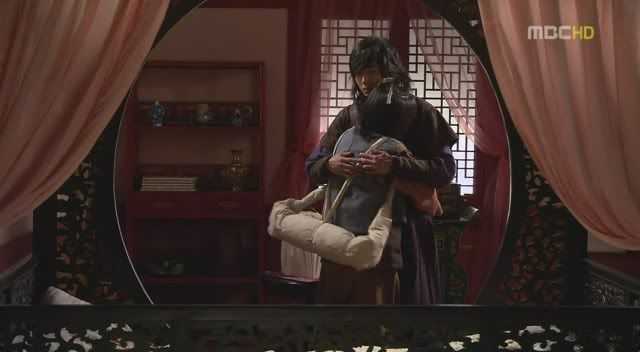
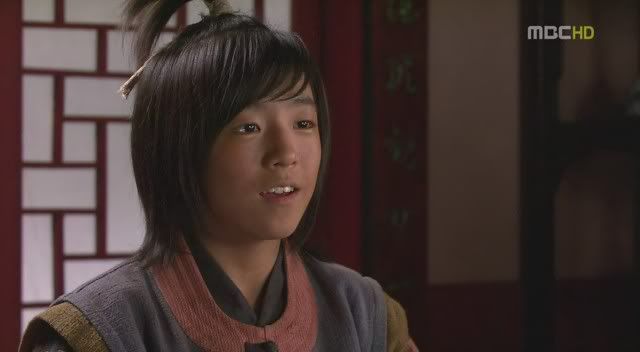

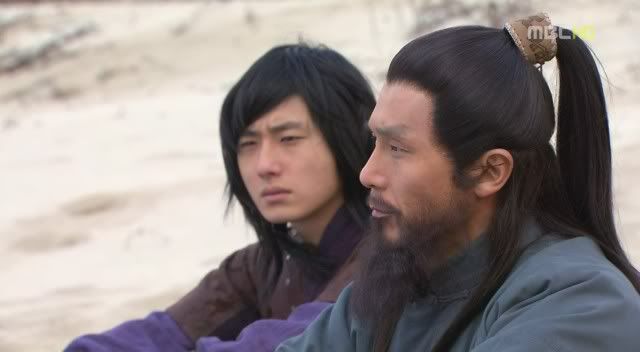
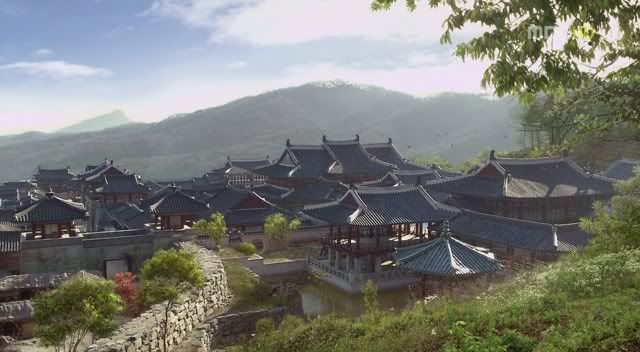
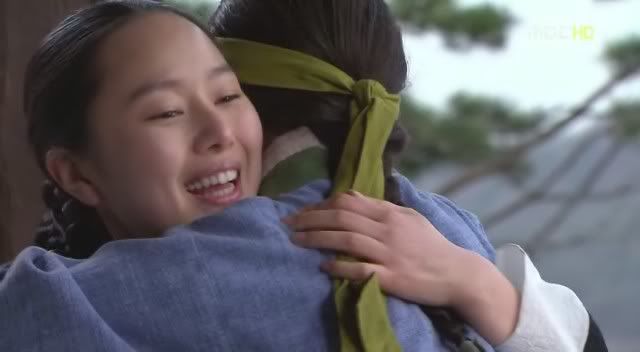
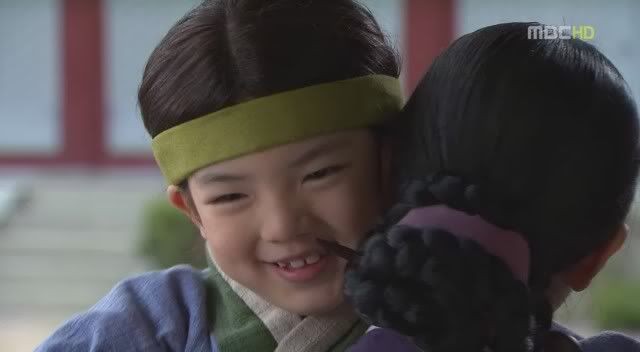
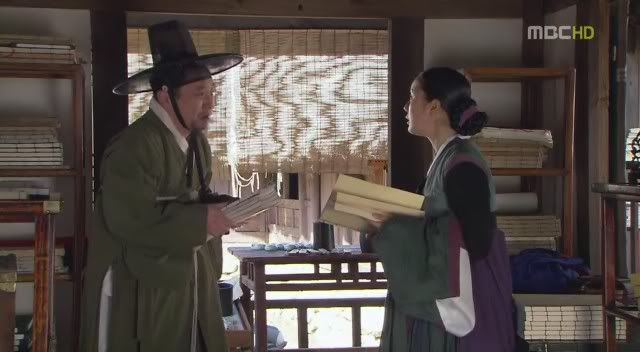
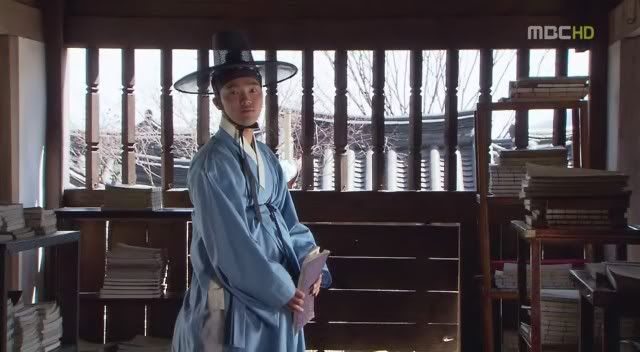
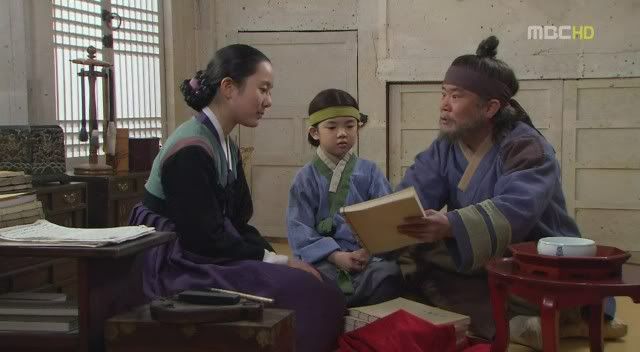
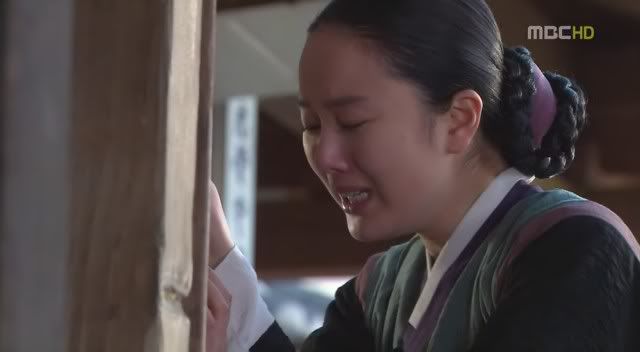
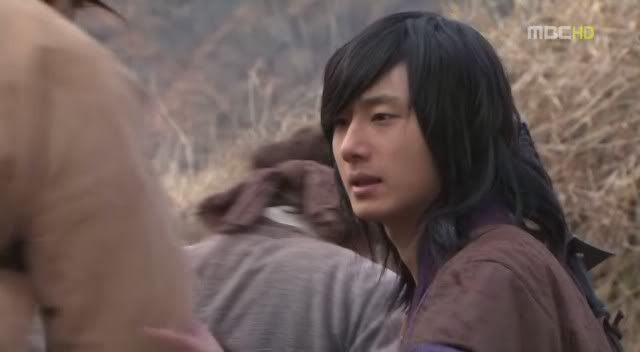
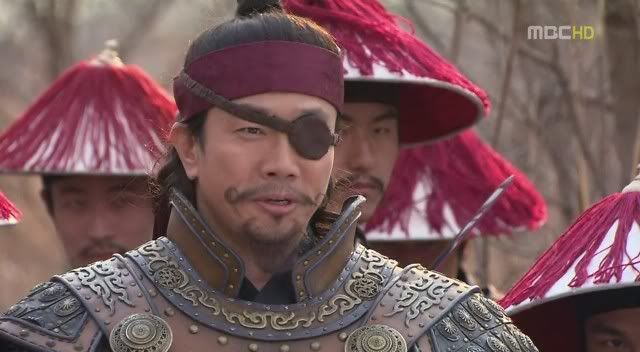
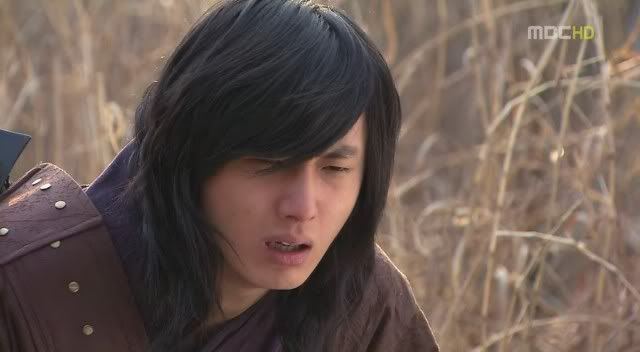
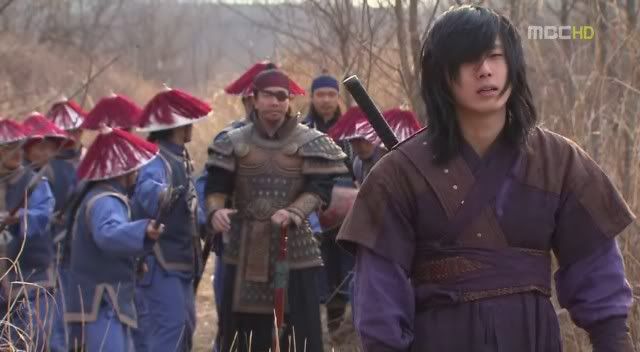
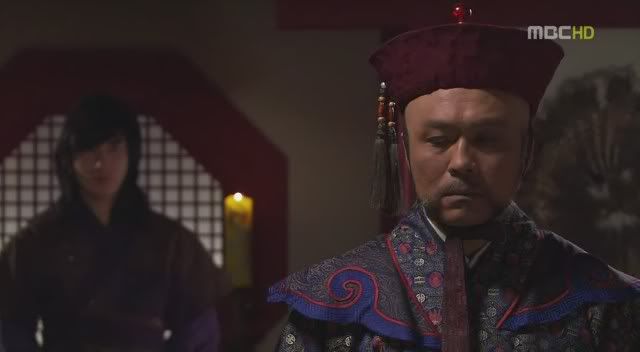
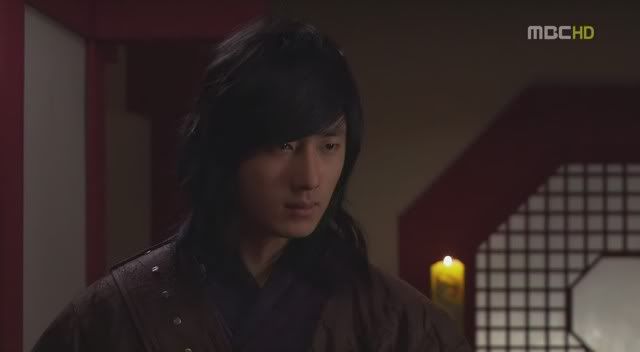
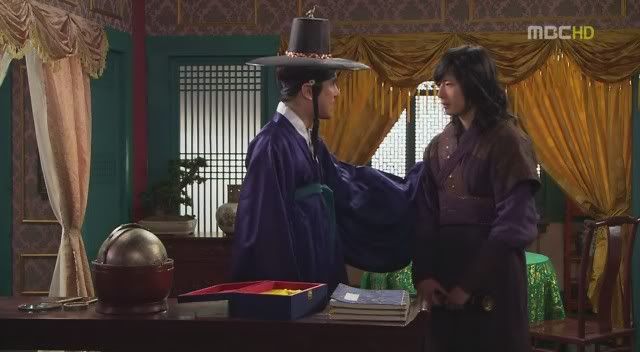
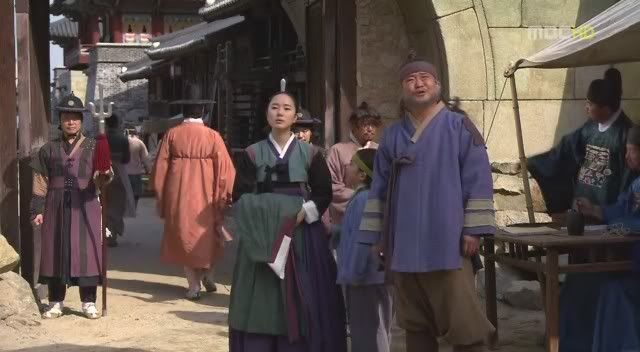

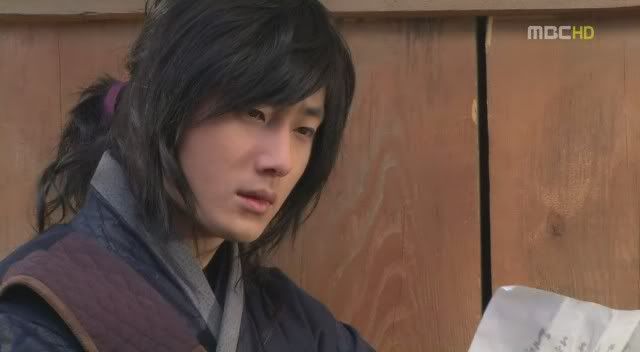
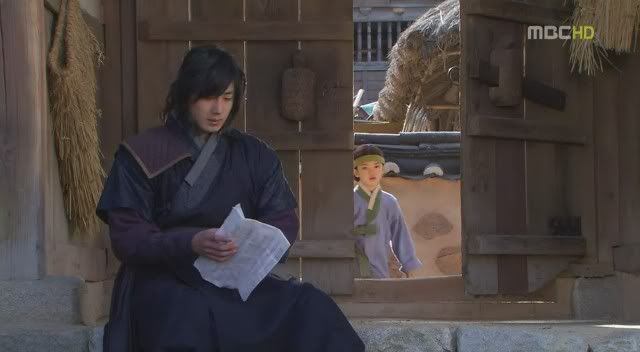
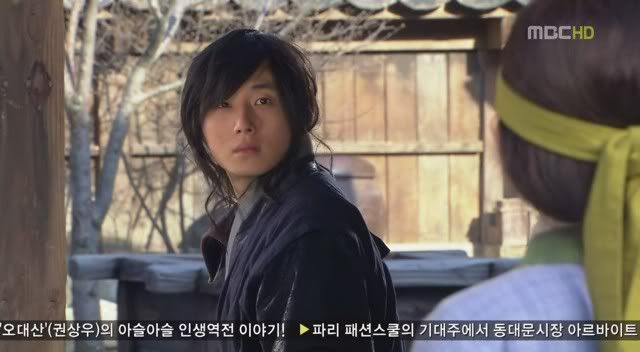
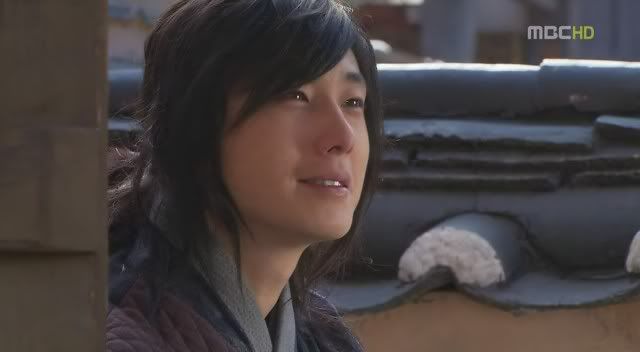
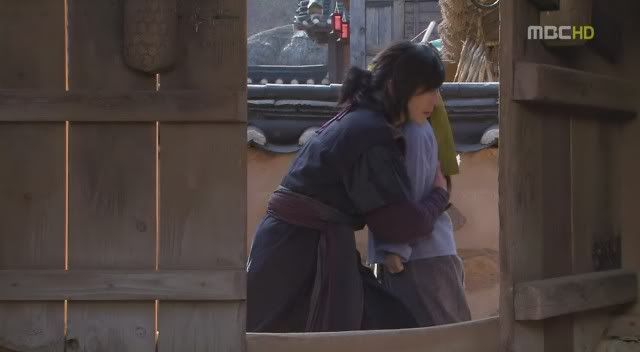
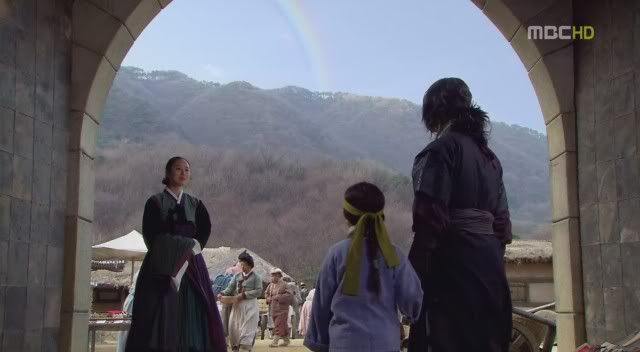
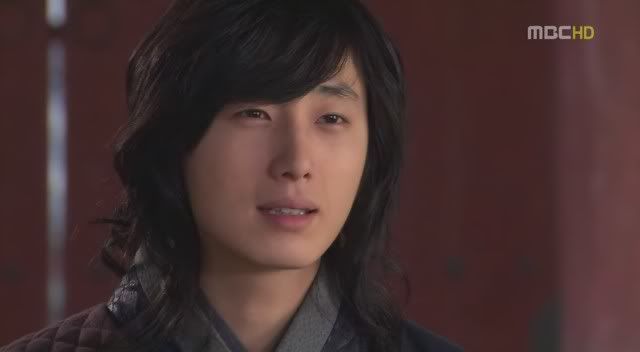
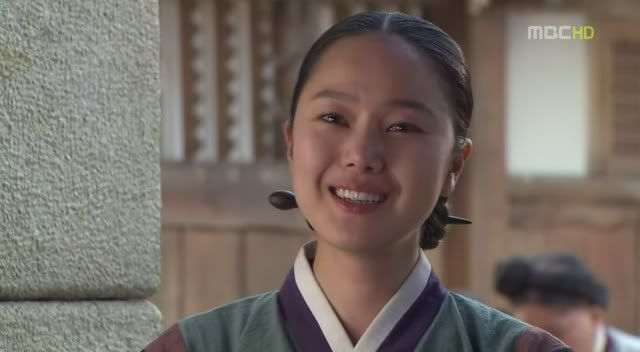
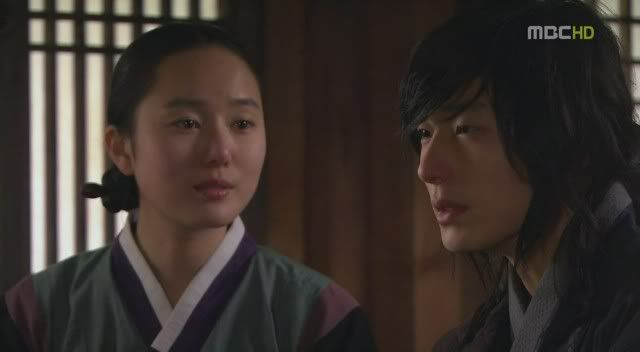
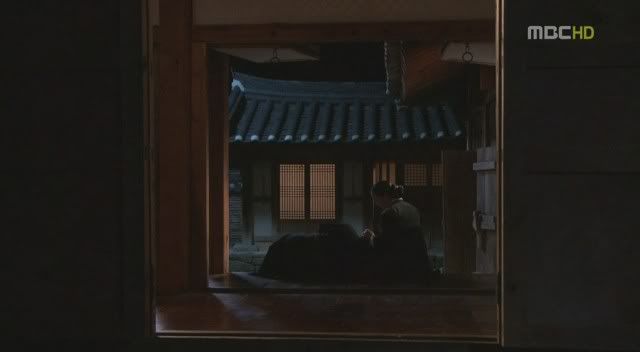
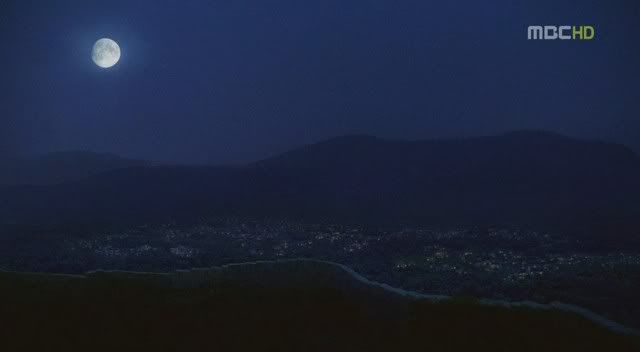
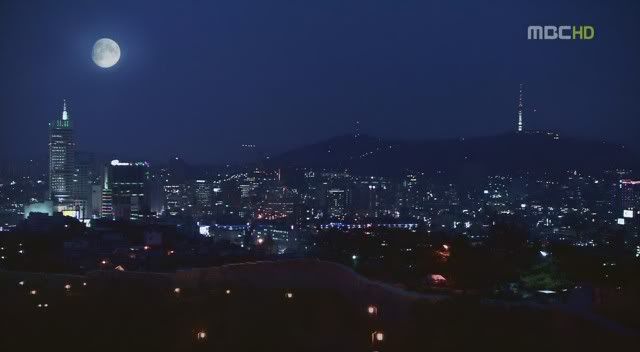
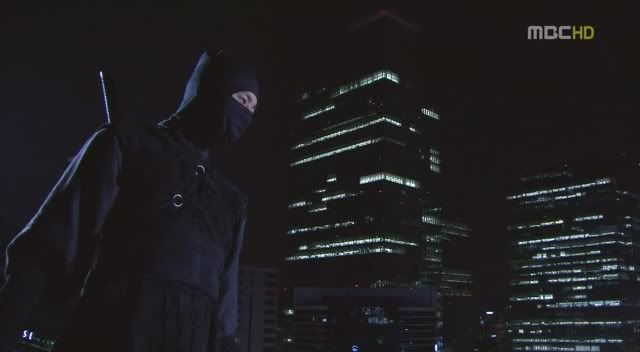
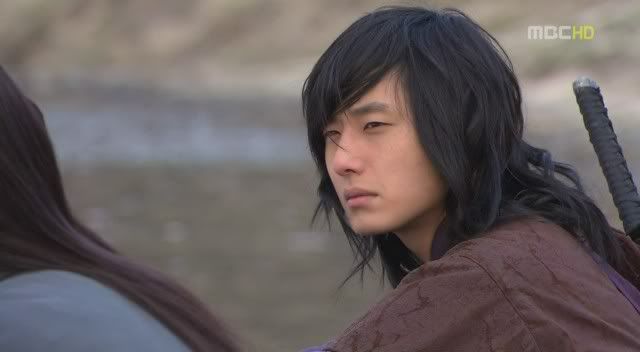
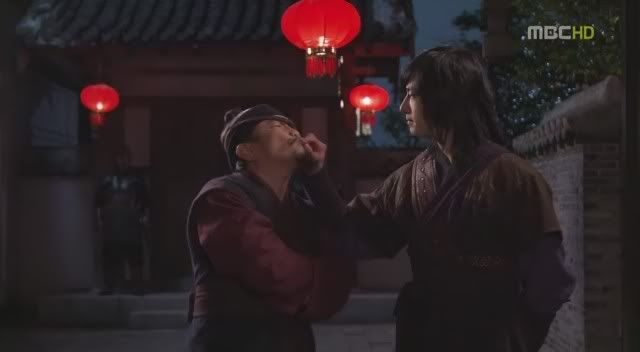
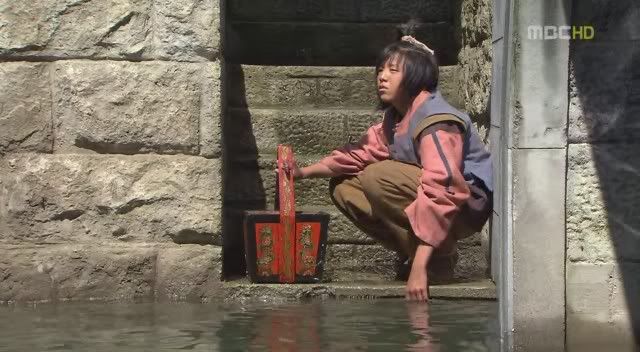
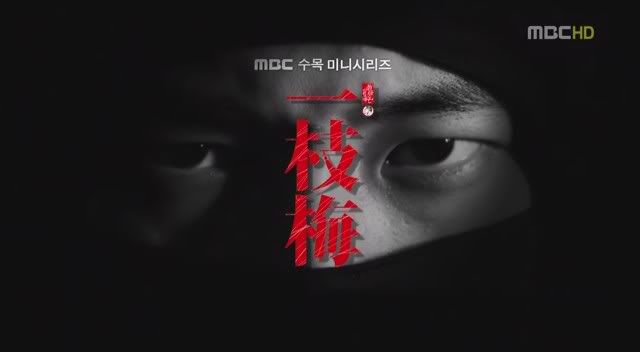

![[Drama Chat] Rookie check-in (2024 version)](https://d263ao8qih4miy.cloudfront.net/wp-content/uploads/2024/05/LovelyRunner0910_14.jpg)







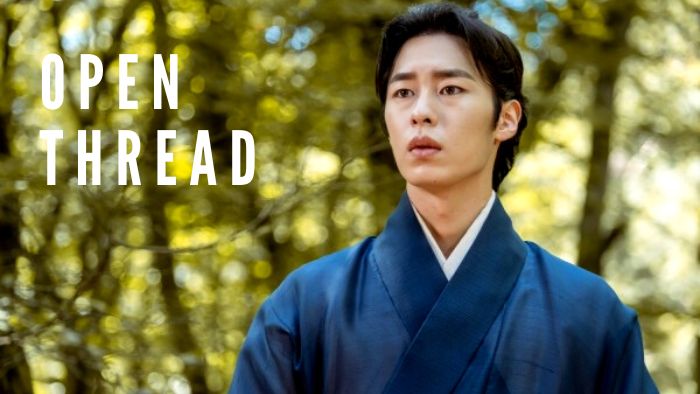
Required fields are marked *
Your email address will not be published. Required fields are marked *
51 Seb
January 1, 2015 at 11:44 PM
This drama is such an amazing example of storytelling. Ugh it broke my heart.
I just wish that in that last scene of Wol hee and Iljimae she also assured him that even if his dream is true, she would be by his side in the that future too.
Thx for the lovely Comments.
Required fields are marked *
52 deadrockstar
March 11, 2015 at 12:32 PM
I was a tad disappointed with this drama, not because it was poor per se, but I suspect because it had been given fantastic ratings by dramabeans, and I hence had rather high expectations of it.
I felt that the show was unnecessarily long - yes it's arguable that the number of episodes were essential for character development, but the episodes in the middle felt too repetitive in nature and didn't contribute much to the furtherance of the storyline. The consequence was that the show just wasn't that gripping. My litmus test: I simply didn't feel compelled to click on the next episode when the current one ended. Another side-effect of the multitude of side plots was that it necessitated the constant introduction of minor characters, which was rather irritating, especially when half of them fall head-over-heels in love with Iljimae.
The romantic aspect of the show was quite baffling to me. I get that dating and marriage conventions may have been vastly different in ancient Korea, but surely there must be some semblance of realism injected into the show? I'm fine with Iljimae being instanteneously drawn to Wol Hee because of his love for Dal, but must it be mutual? On what basis does she have to pin over an utter stranger for 3 years after meeting him just once, and then sleep with him on the very day that they meet again?! But what I found most ridiculous was the constant abandonment of Wol Hee. This cycle repeats every single time - he leaves her, she's heart-broken, he returns, he promises not to leave her again, then he leaves her. This doesn't just happen once or twice; it recurs every 3 or 4 episodes. How can someone be such an asshole to a person he supposedly loves? Yes yes, Iljimae is all about nation over self, but how can there be absolutely no conflict in his heart? Not that I'm counting, but if Joseon vs Wol Hee was a soccer match, the scoreline was probably 6-0. I would've liked to see him torn over his duty to his nation and his love for his girl.
Similarly, Chief Gu and Baek Mae's love story was kinda weird for me too. We think it's one-sided initially, then suddenly she confesses that she knew about and appreciated his affections all long but couldn't do anything about it, which is hard to believe given her previous stoic and cold demeanour towards Chief Gu all along. Furthermore, it doesn't cohere with her jaded perception of men. All these made her eventual acceptance of Chief Gu as her future husband unrealistic for me.
I loved the last few episodes of the show, but for me, a great drama must be able to sustain my interest throughout, and not just end well. 7/10 for me.
Required fields are marked *
53 Hesti
April 29, 2018 at 12:21 AM
I love your review. Yes. We need a hero as human. It is beautiful. And i think i am going to watch Return of Iljimae because of your beautiful recap.
Required fields are marked *
54 princess marya
July 24, 2019 at 10:05 AM
hi! I desperately want to know where the ending video of the movie comes from. it's at first pages of the book, I know that. then there is Iljimae siting in their house, good with that too. but where do the next ones come from? the one that Iljimae is siting on a roof with normal cloths watching kim ja joam and the one that Iljimae is tied up and a blade comes out of his shoe :) I would be super thankful if you could tell me that
Required fields are marked *